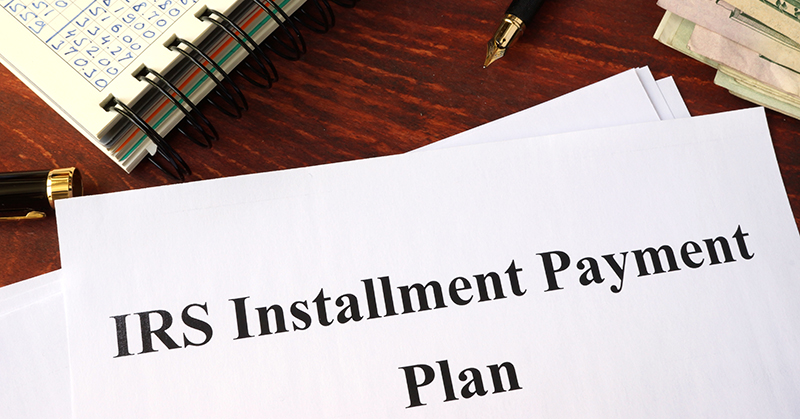
For any number of reasons people might find themselves in a situation where they don’t have the money that they owe the IRS at the they file taxes. The only thing worse than owing the IRS is not having the money the that you owe them. From my experience, many people in this situation won’t even bother to file the taxes at all, which only makes matters worse. If you find yourself in a situation where you owe the IRS but don’t have the money. It’s best to file your return on time, send whatever money you have at that time and make a payment arrangement for the rest.
The IRS does offer payment plans or installment agreements, where you can pay your overdue tax in monthly payments. This payment will allow you to pay whatever money you owe over a specified period. Of course, the IRS does assess interest on the tax owed over the life of your payment.
Types of Payment Plans
Payment plans are offered in two types. Short-term payment plans and long-term payment plans.
Short-term payment plans are four months or less and the total amount owed may not exceed $100,000.
Long-term payments (installment agreements) are four months or more and the total amount owed may not exceed $50,000.
Payment plans can be established as autopay or manual payment. There is no fee for setting a short-term payment plan. There is a $31 setup fee for long-term payment plans with autopay. There is a $130 setup fee for long-term payment plans with manual payments.
How to Implement a Payment Plan
Payment plans must be applied for through the IRS website. It’s as simple as setting up a user name and password then entering your financial information. Once a payment plan is set up, if any payments are missed the IRS can terminate the entire agreement.
Special circumstances
Under special circumstances the IRS may grant a taxpayer who’s financially unable to pay an extension of time to pay, under the IRS Hardship Extension. Hardship extension can be applied for using Form 1127. Financial hardships must be proven. Applications for these extensions are reviewed individually by the IRS and decided on a case-by-case basis.
Do you have a tax question or need to schedule an appointment with a tax professional?
Need a tax professional to make sure your taxes are filed correctly?
